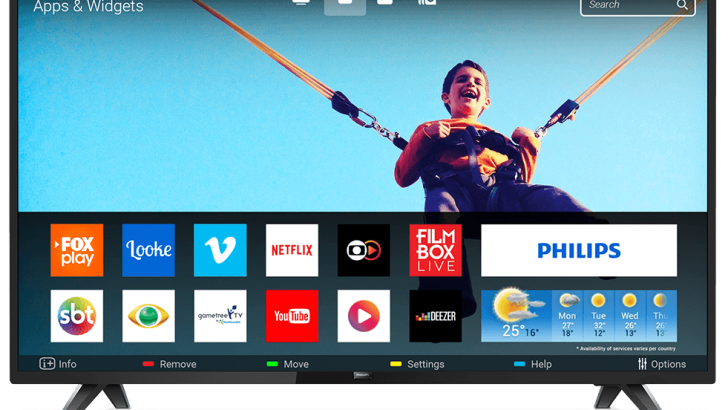There was a time when “smart TV” was not considered a staple in many houses. Now, more people have a smart TV set at home. However, there are those who still genuinely ask: “What is a smart TV? What’s the difference between the ‘smart’ and ‘not-smart’ TV?” Here is the basic guide about smart TV, and what benefits you could get from buying it.
History of Smart TV
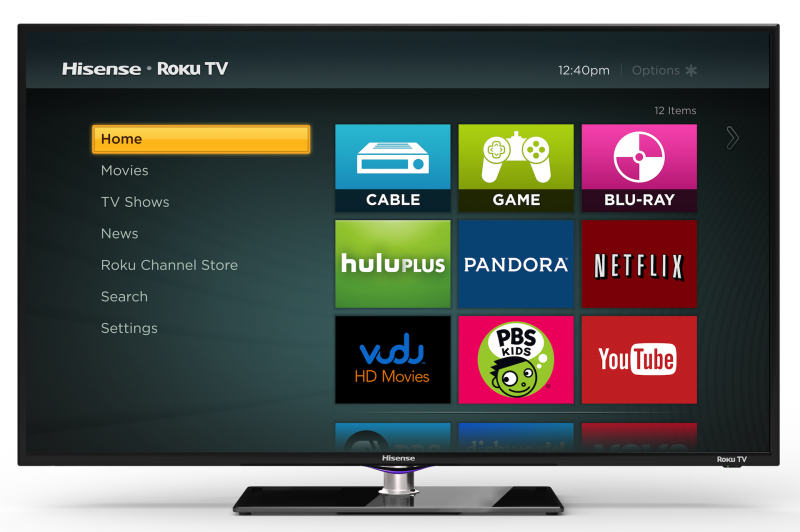
tomsguide.com
So, what is a smart TV?
The main feature that makes this TV distinctive is the integrated internet connection. Unlike internet TV, which gets its content directly from the internet, smart TV offers the ability to stream and browse integrated online contents. A smart TV is the combination of computer, TV set, and set-top unit (basically a cable box).
Smart TV technology has been around since the early 2010s, but it was preceded by digital TV (early 2000s) and “intelligent television set” with LSI chips (early 1980s). Despite being very different from the modern smart TV, these early televisions have a similar ability to broadcast programs over additional lines. This technology was patented in the mid-1990s, with extra ability to process analog and digital data.
The early digital TV did not get the same acceptance as smart TV in the early 2010s, because the internet has not become staple in common houses. Only after the use of fast internet become widespread that smart TV gained popularity.
Main Feature of Smart TV
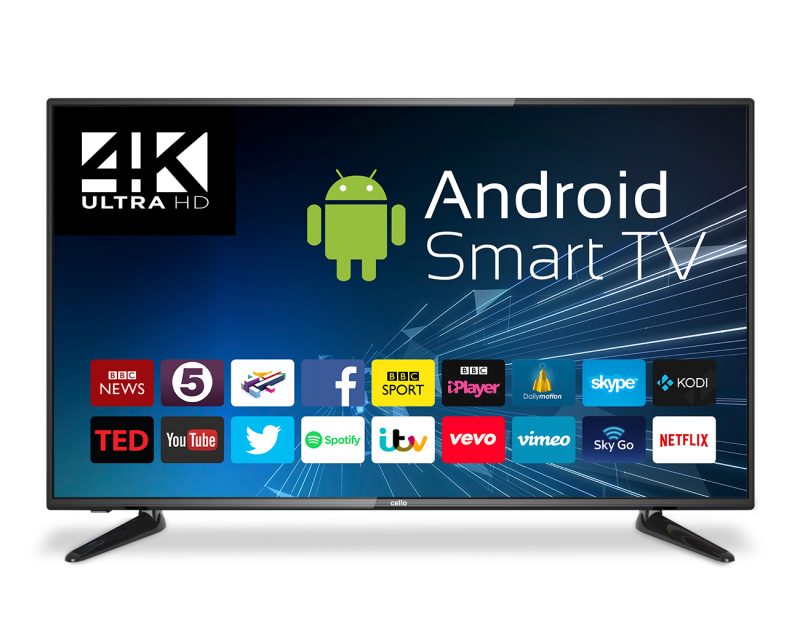
tv-village.net
What is a smart TV main feature? It’s none other than the ability to stream movies, songs, and shows from various broadcast providers. The standard connection for modern smart TVs comes from built-in Wi-Fi and Ethernet. When connected, you can access shows from international channels such as HBO, Hulu, Netflix, Amazon Prime, and YouTube.
Depending on your subscription package, you can also access news, entertainment, sports, and lifestyle channels. There is also access to regional channels (if available). Other features include a web browser and music player. The internet helps viewers accessing contents without third-party providers.
Additional Features of Smart TV
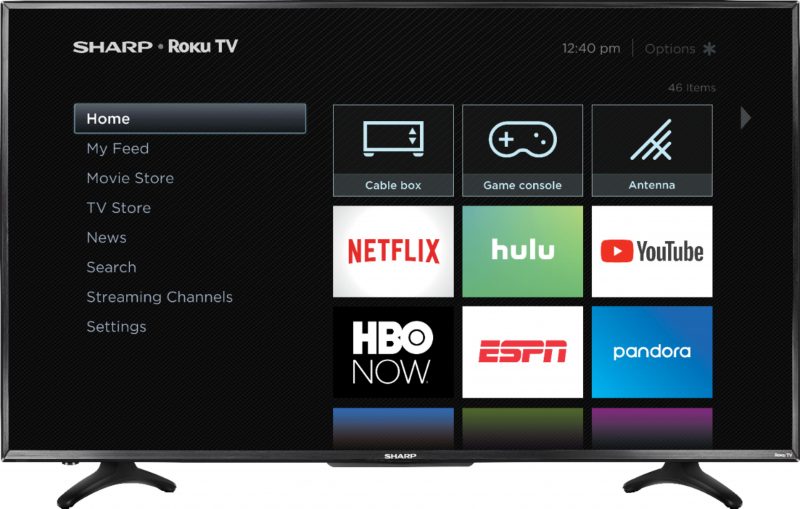
bestbuy.com
Smart TV features don’t stop on online access to contents. Recently, manufacturers have produced television sets with other “smart functions”, such as:
- Voice recognition
Voice recognition tools such as Google Assistant, Alexa, and Cortana have become integral parts of common households. Many smart TVs now offer compatibility with voice recognition speakers.
- Mobile compatibility
What is a smart TV without mobile device compatibility? Most smart TVs have offered abilities to connect with mobile devices and laptops. You can browse and enjoy contents in mobile devices through the smart TV, and vice versa.
- Smart home compatibility
Many smart TVs offers compatibility with smart home technology. A dedicated dashboard gives you information about different parts and functions, such as door locks and lighting intensity. You can control everything through this dedicated dashboard.
Smart TV also gives access to popular apps, such as Spotify, Pandora, and Facebook TV. The apps arrangement on display depends on the brand and series.
Benefits of Having Smart TV
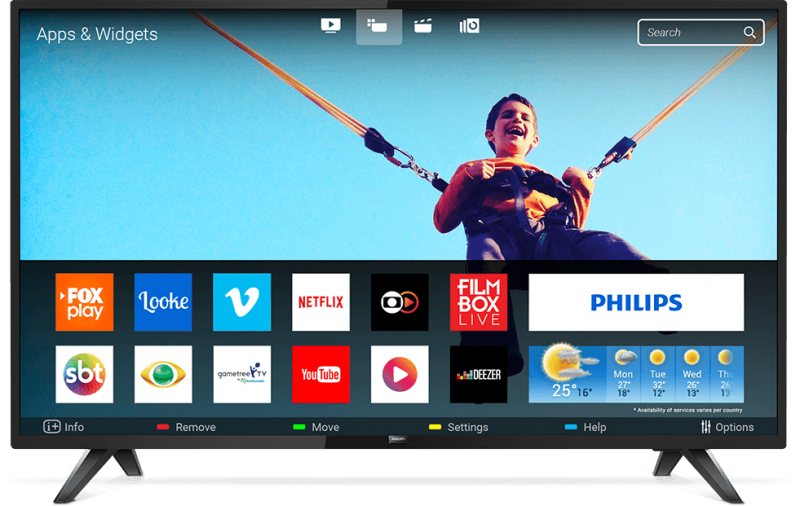
megazineluiza.com.br
After knowing what is a smart TV, should you consider buying one? The answer is yes if you look for these benefits:
- Less cluttered entertainment center
A smart TV provides endless entertainment without physical clutters. Instead of having a DVD player, numerous remote controllers, and messy HDMI cords, you can have one TV box that provides contents from the internet.
- Numerous contents
Smart TV gives more options than traditional TV channels. You don’t need to watch “on demand” contents, because everything is available in the system.
- Multitasking ability
Smart TV allows you to do a computer or mobile device tasks on TV. For example, you can browse social media, look at photo albums and recorded videos, or search for something on the internet.
Like any other smart household products, smart TV also provides you with convenience. You can control household devices and functions from the dedicated dashboard, organize your files, and enjoy contents without depending on various appliances.
Downsides of Smart TV
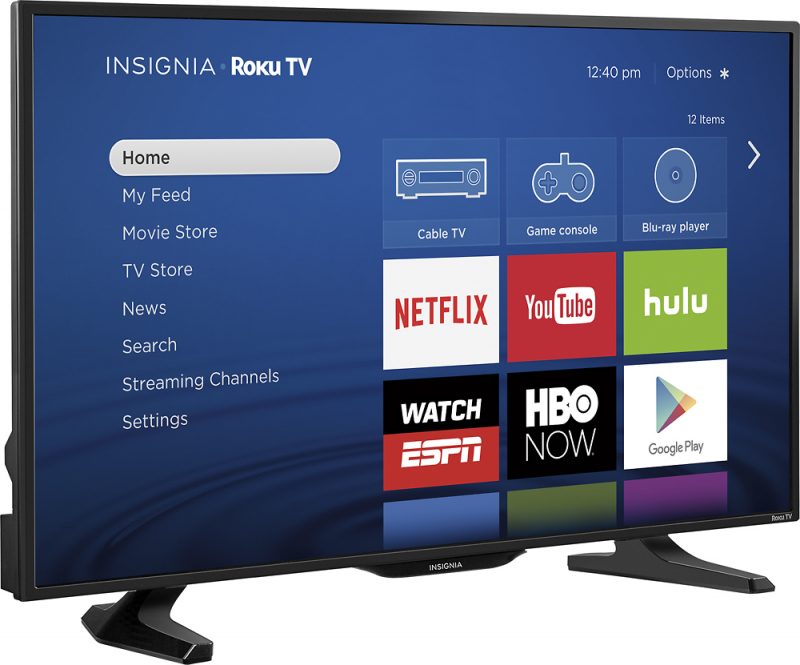
bestbuy.com
Despite the convenience, smart TV technology also offers risks. There are several downsides to consider before you decide to have one, such as:
- Privacy concerns
Smart TV is prone to security bugs or cyberattacks, which can provide unauthorized access to your devices. Hackers can wipe out or steal your files, manipulate your contents, compromising your home safety, and even overhearing your conversation.
- Interface problems
Interface problem is something that many smart TV manufacturers still have not dealt with. While you have no problem browsing apps, using the actual browsers in a smart TV can be difficult.
- Common technical problems
Smart TVs are still considered less stable than smartphones or computers. There are cases where the TVs stop working after updates or experience lags. Glitches and freezing are still common occurrence.
Finally, depending on where you live, a smart TV does not always provide content freedom as promised. Sometimes, certain apps can be blocked or unavailable.
Conclusion
What is a smart TV? It is a TV set with integrated internet and content sources, providing movies, music, TV shows, and news through streaming services. This device still needs improvements in many of its aspects, but it offers benefits that will make your life more convenient.
